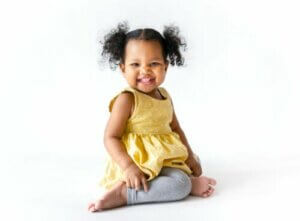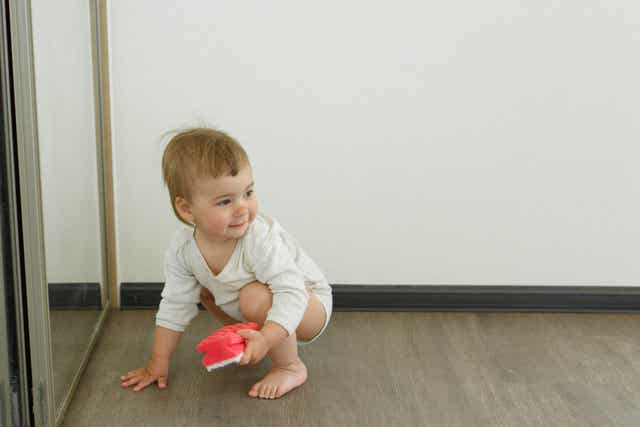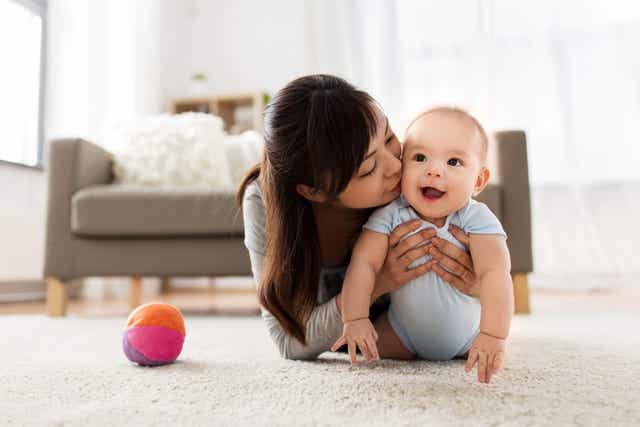Order in the First Years of Your Child's Life


Written and verified by the child educator Pedro González Núñez
Order in the first years of your child’s life is very important. In a well organized and orderly environment, people are happier and more productive. For this reason, during the first few years of your child’s development, it’s important to establish order. That way, they can grow correctly and understand the importance of an organized life from childhood.
In fact, according to the famous teacher Maria Montessori, kids are very sensitive towards routines from birth. It’s especially noticeable during the first two years of life, when children show a preference and specific need for natural order.

Order in the first few years of your child’s life, according to Maria Montessori
Let’s start by explaining the need for order in the first few years by looking at research by the well-known educator Maria Montessori, who has contributed greatly to early childhood education.
Based on her observations, Montessori managed to help us see children from a different perspective. To do this, she discovered that order was a vital need of childhood, especially in the first few months.
According to Montessori, the child arrives in a world that is totally unknown and alien to them. Then, in the first years of life, they have to learn little by little, adapting to the environment where they’ll be the rest of their life.
To do this, kids focus, above all, on observation. This is why correct placement of objects is so important. If kids develop in a comfortable and orderly environment, they’ll see that it’s easier to relate to the environment, identify and orient themselves in the space.
Trust and safety
An orderly environment allows children to feel more confident and secure. In an organized environment, they’ll begin to crawl, explore everything on their own, and discover the world around them.
So, when your child starts to move more freely, first crawling and then walking, it’s essential that they do so in an orderly environment. In addition to feeling comfortable in a familiar space, they don’t run into obstacles that could hurt them while exploring.
Remember, children feel better in controlled and familiar environments. That’s why objects should be in places familiar to them. This also helps them learn about orientation and space management.
Children’s sensitivity to order
The younger children are, the more sensitive they are to order. This is why it’s important to avoid constant changes and disorder, since it can create insecurities and disturbances in their young minds. These aren’t good for their intellectual development.
Now, we’ll talk about something that’s not as well known, but that’s just as important. Order in the first few years helps children develop proprioception. This refers to your knowledge of where your body parts are in respect to the environment around you.
Order helps kids better develop proprioception. In addition, it helps them with their coordination. In the first stages of their development, this coordination is very limited.
That said, order also helps kids observe what’s going on around them better. When their mother takes them everywhere, they can notice everything around them. They can relate to their environment, internalize it, and understand it a little better every day.

Routines and order in the early years
Routines are necessary for little ones. They help them feel more secure and confident in spaces and times they’re familiar with. In this sense, routine has a lot to do with order in the first few years.
Routines let kids predict what may happen, helping them feel more confident and safe in their orderly and organized environment.
All this helps kids to assume responsibilities as they grow up. It also helps parents and teachers in everything they do to help kids build independence.
Maria Montessori spoke about the need for order in the first few years of children’s lives. In fact, in the schools that follow her method, this very important skill is a part of their core vision.
Order in the first years of your child’s life is very important. In a well organized and orderly environment, people are happier and more productive. For this reason, during the first few years of your child’s development, it’s important to establish order. That way, they can grow correctly and understand the importance of an organized life from childhood.
In fact, according to the famous teacher Maria Montessori, kids are very sensitive towards routines from birth. It’s especially noticeable during the first two years of life, when children show a preference and specific need for natural order.

Order in the first few years of your child’s life, according to Maria Montessori
Let’s start by explaining the need for order in the first few years by looking at research by the well-known educator Maria Montessori, who has contributed greatly to early childhood education.
Based on her observations, Montessori managed to help us see children from a different perspective. To do this, she discovered that order was a vital need of childhood, especially in the first few months.
According to Montessori, the child arrives in a world that is totally unknown and alien to them. Then, in the first years of life, they have to learn little by little, adapting to the environment where they’ll be the rest of their life.
To do this, kids focus, above all, on observation. This is why correct placement of objects is so important. If kids develop in a comfortable and orderly environment, they’ll see that it’s easier to relate to the environment, identify and orient themselves in the space.
Trust and safety
An orderly environment allows children to feel more confident and secure. In an organized environment, they’ll begin to crawl, explore everything on their own, and discover the world around them.
So, when your child starts to move more freely, first crawling and then walking, it’s essential that they do so in an orderly environment. In addition to feeling comfortable in a familiar space, they don’t run into obstacles that could hurt them while exploring.
Remember, children feel better in controlled and familiar environments. That’s why objects should be in places familiar to them. This also helps them learn about orientation and space management.
Children’s sensitivity to order
The younger children are, the more sensitive they are to order. This is why it’s important to avoid constant changes and disorder, since it can create insecurities and disturbances in their young minds. These aren’t good for their intellectual development.
Now, we’ll talk about something that’s not as well known, but that’s just as important. Order in the first few years helps children develop proprioception. This refers to your knowledge of where your body parts are in respect to the environment around you.
Order helps kids better develop proprioception. In addition, it helps them with their coordination. In the first stages of their development, this coordination is very limited.
That said, order also helps kids observe what’s going on around them better. When their mother takes them everywhere, they can notice everything around them. They can relate to their environment, internalize it, and understand it a little better every day.

Routines and order in the early years
Routines are necessary for little ones. They help them feel more secure and confident in spaces and times they’re familiar with. In this sense, routine has a lot to do with order in the first few years.
Routines let kids predict what may happen, helping them feel more confident and safe in their orderly and organized environment.
All this helps kids to assume responsibilities as they grow up. It also helps parents and teachers in everything they do to help kids build independence.
Maria Montessori spoke about the need for order in the first few years of children’s lives. In fact, in the schools that follow her method, this very important skill is a part of their core vision.
All cited sources were thoroughly reviewed by our team to ensure their quality, reliability, currency, and validity. The bibliography of this article was considered reliable and of academic or scientific accuracy.
- Montessori, M., Sanchidrián Blanco, C. (2013). El método de la pedagogía científica: Aplicado a la educación de la infancia. Madrid: Biblioteca Nueva.
This text is provided for informational purposes only and does not replace consultation with a professional. If in doubt, consult your specialist.








